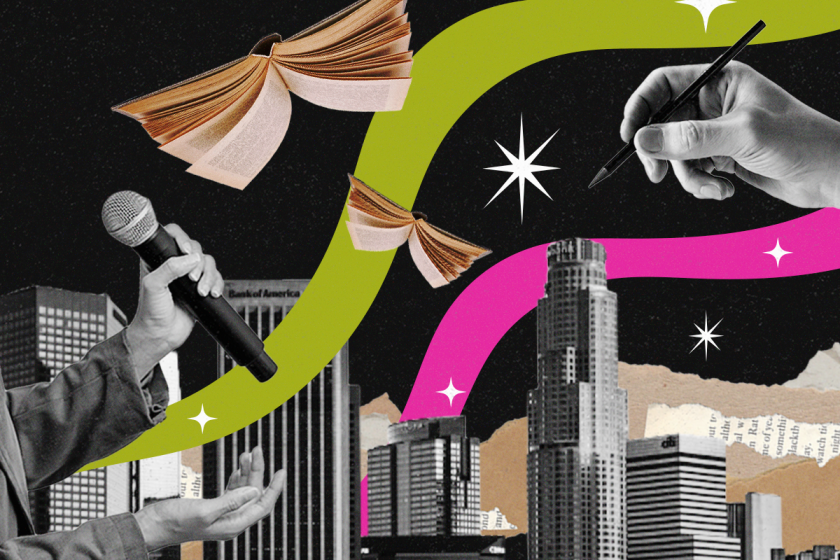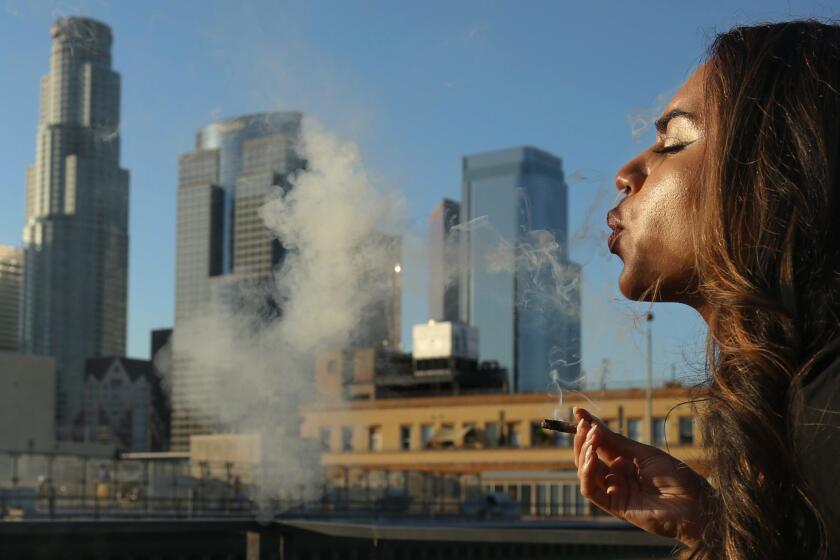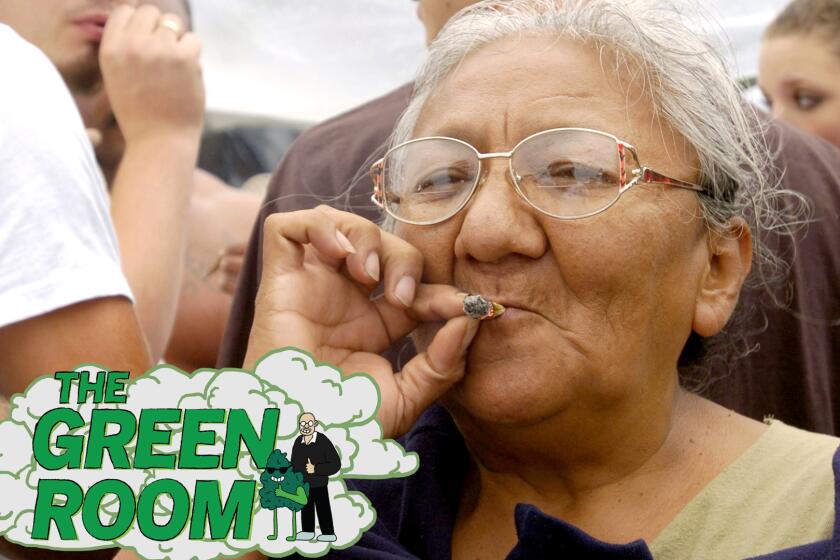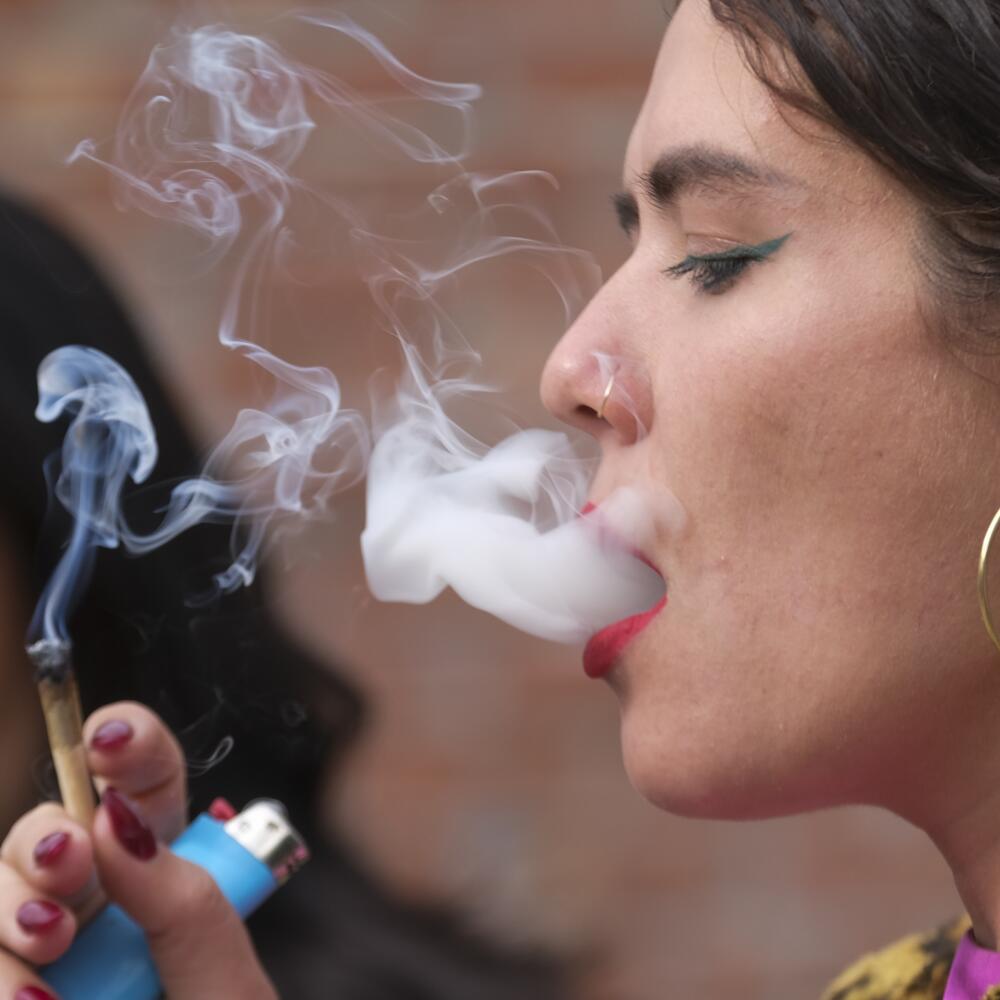
- Share via
Three years ago, Latinas in Cannabis spearheaded International Latinas in Cannabis Day on Sept. 30, marking the midpoint of Hispanic Heritage Month. This year, they hosted the inaugural Latinas in Cannabis Summit, gathering cannabis enthusiasts in the backlot of a soon-to-be Echo Park dispensary.
Tickets for the summit sold out within days, emphasizing its popularity among the community of “CannaJefas” and “MotaMamis” (Canna-bosses and Weed-babes). Those lucky enough to snag a ticket spent the day engaged in workshops and panel discussions with Latina leaders in the cannabis industry.
Susie Plascencia, co-owner of L.A.-based glass bong company Mota Glass, wanted a space to uplift her business as well as the work of other Latina entrepreneurs in the male-dominated cannabis industry.
In 2020, she founded Latinas in Cannabis, an Instagram account meant to empower Latina-owned small businesses and connect them with other entrepreneurs in the field.
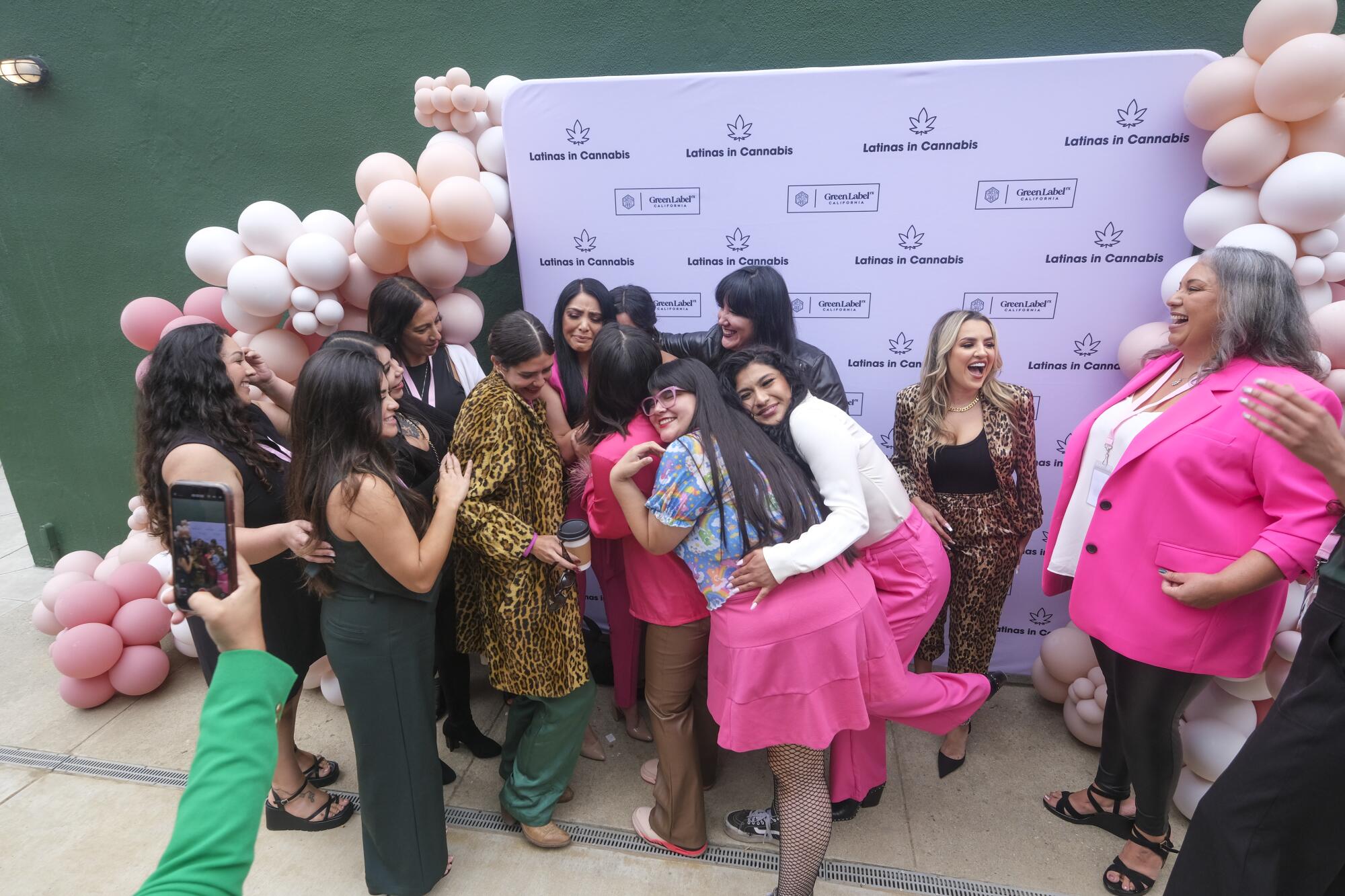
“We really wanted to create that space that was missing in this industry, topics that speak to the Latina and cannabis experience,” Plascencia said.
Three years after Latinas in Cannabis launched, Plascencia believes they are making history with the summit, calling it “the first of its kind.” “Aside from it being a professional cannabis industry event, it’s also a sesh. You can also hit the Mota glass bong and take a joint outside on the patio,” Plascencia said.
We can’t name them all, but here’s a mix of spots across L.A. County where you can listen to a poet pour their heart out in person.
The conference kicked off with an intention ceremony hosted by Dani Olivarez, founder of the Highlites Oasis.
“It’s OK to change your relationship with cannabis,” Olivarez shared with the crowd before leading them through a meditation practice.
Eyes closed, the crowd inhaled and exhaled collectively, sometimes breathing in nearby smoke from the attendees participating in a sesh.
After meditation, Olivarez asked if anyone wanted to share their personal journey with cannabis.
Leila Soveron Ovando was the first to raise her hand.
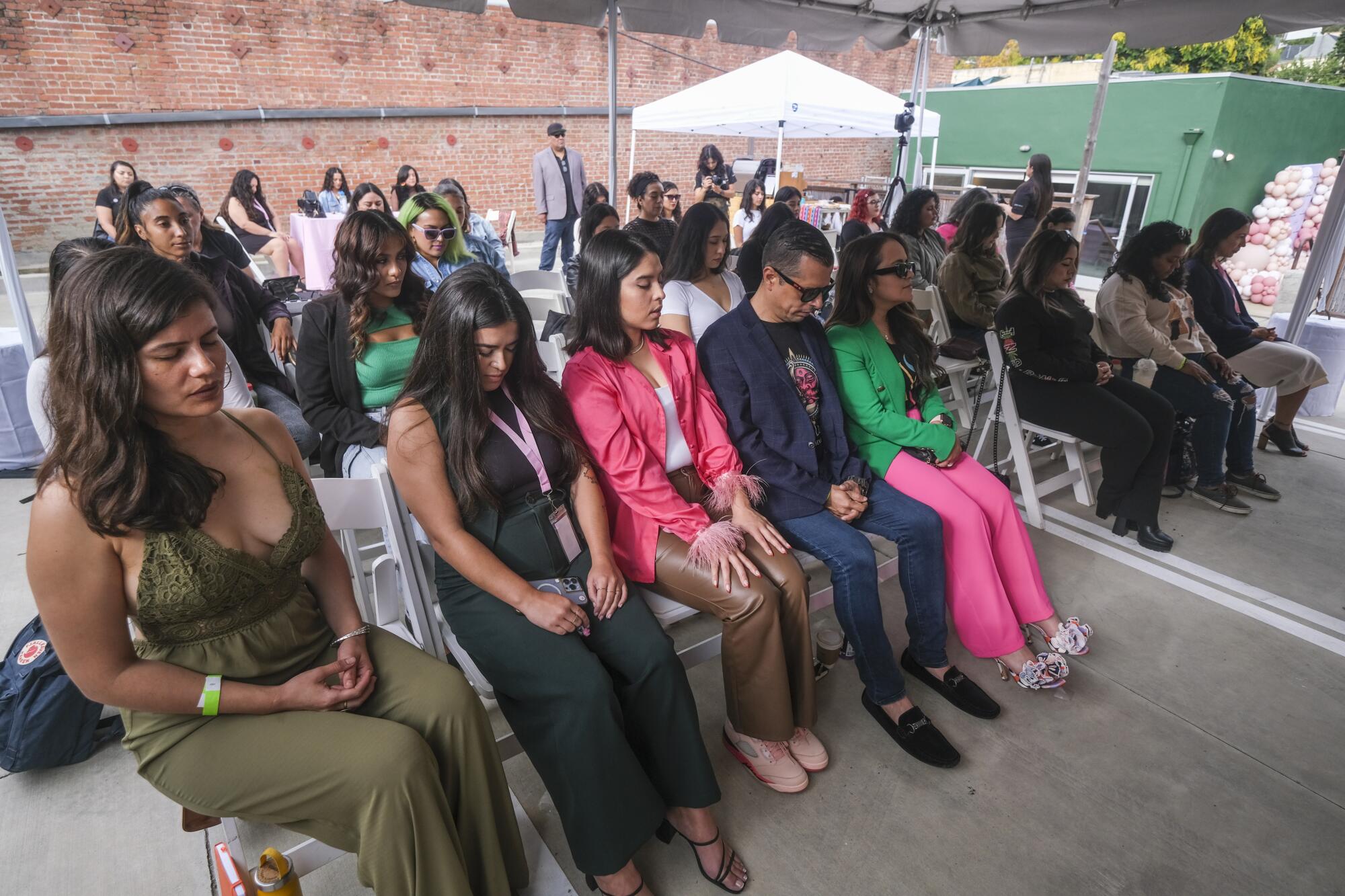
Soveron Ovando shared that she smoked marijuana for the first time at the age of 11 to help with period pain. She then smoked it throughout her teen years, but always believed in its medicinal benefits.
Now at 41, she is a San Francisco-based chef who teaches a cannabis mock infusion culinary course at Mission Language and Vocational School.
“The education in cannabis right now for Latinos is key for us to get a piece of that green pie,” Soveron Ovando said. She also emphasized how communities of color have been at the forefront of the cannabis industry, yet criminalized for it.
The show’s cultural impact is apparent, from our preoccupation with astrology to clips of the show making the rounds on social media.
According to a 2023 United States Sentencing Commission report, Latinos accounted for 70.8% of marijuana possession sentences in the last five years.
Despite the 2016 legalization of weed in California, Soveron Ovando, among many other attendees, expressed frustrations with the continual censorship of marijuana on social media.
“Sometimes my page gets shut down on Instagram when really I’m promoting my class,” Soveron Ovando said.
To avoid censorship on social media platforms, the word “cannabis” was crossed out in some of the promotional posts leading up to the event. Other posts had it typed out as “cännäbis” in some captions to prevent the posts from being taken down.
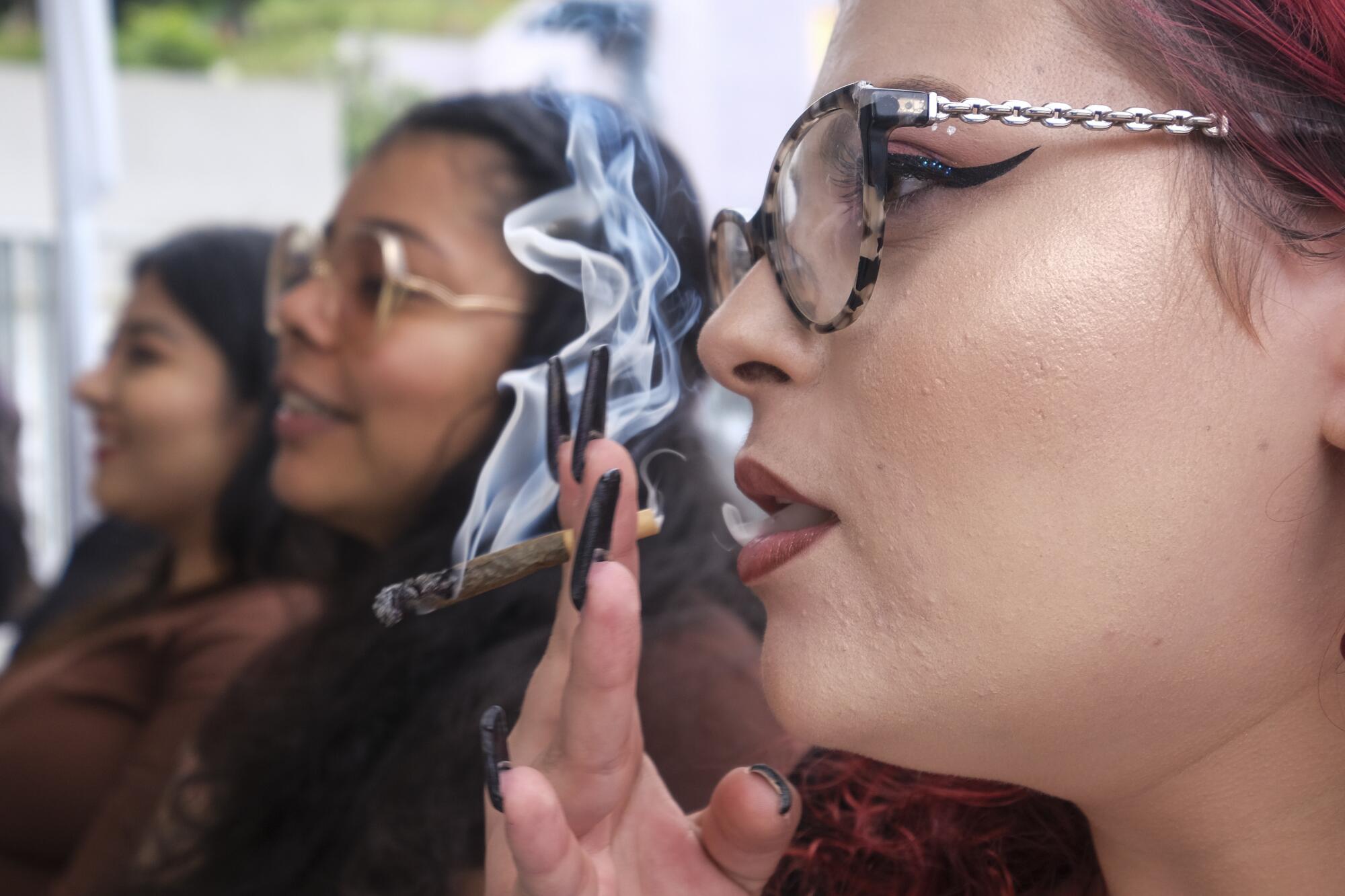
A national study by Q & A Research Inc. and the National Hispanic Cannabis Council reported that U.S. Latinos spend an estimated $2.5 billion on cannabis.
Chelly XiCali, founder and CEO of XiCali Products, says most of her consumers are Latinas. “I think they just see me in themselves and want to support me,” XiCali said.
The exhibit, ‘¡De última hora! Latinas Report Breaking News,’ which opened Sept. 15 and will remain open until May 2025, is a bilingual experience at the Smithsonian’s National Museum of American History.
XiCali sells natural CBD remedies that help with anxiety, migraines and arthritis.
When morphine and codeine didn’t help alleviate the pain that XiCali’s mother suffered due to diabetic nerve damage, XiCali took it upon herself to concoct her own natural medicine using CBD.
“How is it possible that this plant is a crime?” her mother told her.
During the summit, XiCali, a longtime community organizer, led an interactive workshop on dismantling machismo and patriarchal systems in the cannabis industry, where participants identified the roots of systemic oppression.
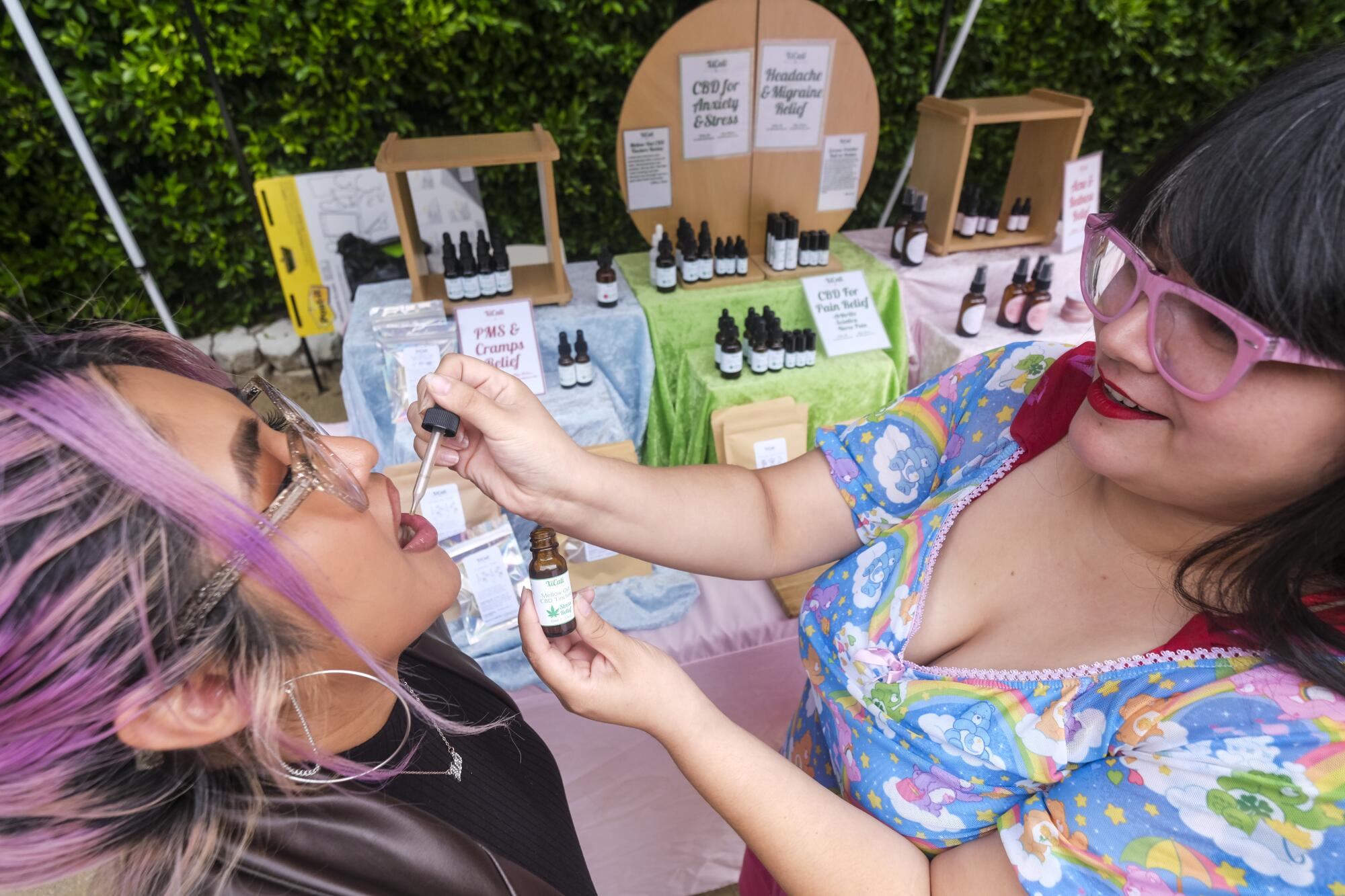
According to the National Hispanic Cannabis Council, 5.7% of all cannabis businesses are Latino-owned and only 4.3% are Black-owned.
In an effort to right the wrongs of the war on drugs, the city of Los Angeles created the Social Equity Program, which awarded a limited number of individuals with cultivation, manufacturing and retail licenses. Applicants needed to meet two of three criteria: a prior marijuana-related arrest, low-income status and at least 10 years of residency in an area disproportionately affected by cannabis convictions.
Cecilia Preza, event sponsor and co-owner of Green Label Rx, applied to the program when it first opened in September 2019. Only 100 new dispensary licenses were approved initially, halting the process for other eagerly awaiting applicants. Preza was not accepted in the first round of applications but remained hopeful that the lawsuit against the city would open up more spots.
Maha Haq is known for being an L.A. cannabis educator, connector and rising star. Just don’t call her a weed influencer.
Then she got the notice that 100 more applications were accepted. Preza was grantee No. 145 of the second batch of applicants.
Excited as she was to move forward in the process, she kept her plans to herself. As a social worker, she feared revealing details about her marijuana consumption and future business endeavors would risk her kids being taken away even in a weed-friendly state like California, a common fear among other CannaMoms at the conference.
“When you’re seeing individuals have their kids removed over cannabis, that’s disheartening for me,” Preza said.
Pot, pain management and free lunch: We roll along with the re-launched senior shuttle between an O.C. retirement community and a Santa Ana dispensary
There were other logistical obstacles on her way to licensing. Recipients of Social Equity have to find a location a year prior to opening and have to maintain a certain distance from schools and other Social Equity dispensaries.
After some bumps in the road, Preza is finally on the path she saw herself on when she initially applied to the program. Attending the summit confirmed she is where she belongs.
“To see a lot of Latinas like myself really embracing the plant, the industry, trying to be boss chingona women in this space empowers me,” Preza said.
The conference closed with a Latina Power Sesh, a symbolic act to emphasize that Latinas are no longer on the sidelines when it comes to the cannabis industry, nor are they playing the same game as the “Canna Chads and Bros” (men).
More to Read
The Latinx experience chronicled
Get the Latinx Files newsletter for stories that capture the multitudes within our communities.
You may occasionally receive promotional content from the Los Angeles Times.
